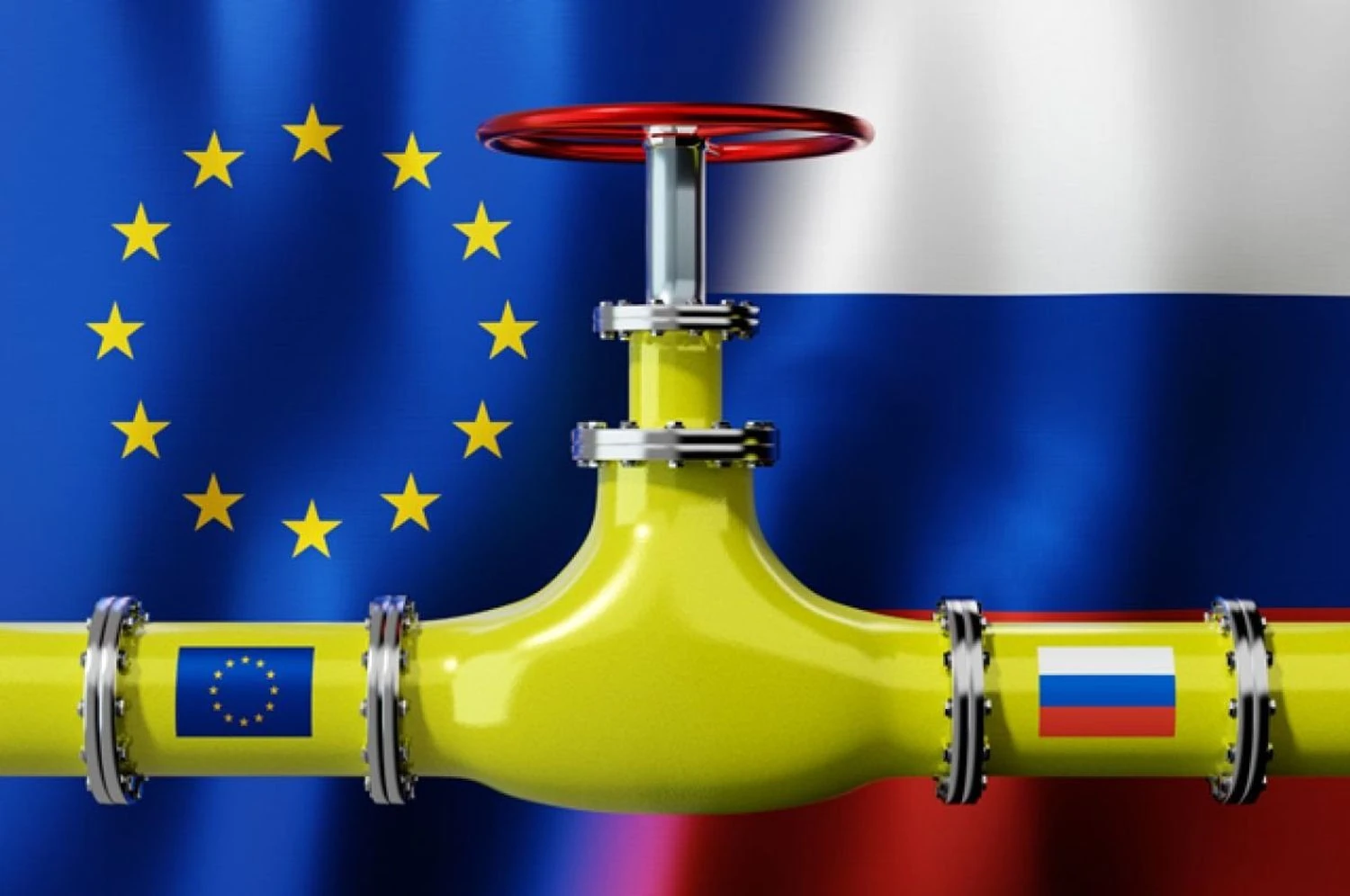“Will the European Union abandon Russian gas under US pressure: an expert explainsThe European Union is considering the possibility of a faster cessation of Russian oil and gas imports. This is due to pressure
from the United States, which demands a sharp increase in purchases of American LNG and a leveling of the trade balance.
”, — write: unn.ua
The EU has been under pressure from the United States, which demands a sharp increase in purchases of American LNG, which will lead to the abandonment of the Russian product. This was told to a UNN journalist by economist Oleg Pendzyn, executive director of the Economic Discussion Club.
In her address to the European Parliament, von der Leyen stated that the EU “is considering an accelerated rejection of Russian natural gas as part of the 19th package of sanctions, which is currently being prepared. The Kremlin, on Monday, stated that no sanctions would ever force Russia to change its “course” in the war in Ukraine.
How much Russian gas does the EU import?According to Eurostat, in the first half of 2025, liquefied natural gas (LNG) worth about 4.48 billion euros was imported from Russia, which is 29% more than in the same period last year. The reason for this increase is the desire of EU countries to accumulate cheap product before the introduction of new sanctions.
According to Oleg Pendzyn, the EU is on its way to abandoning Russian liquefied gas for several reasons, one of which is the financing of the war, but it is not the main one.
The fact is that Europe and the United States of America signed a trade agreement, where Europe undertook to make certain changes in legislation on technical regulation and antitrust policy. In parallel with this, Europe undertook to sharply increase the total volume of purchases from the United States of America of commodity items in order to equalize the trade balance, which at the moment is largely in favor of Europe, the economist explains.
US pressureThe United States of America called on the European Union to stop importing Russian energy carriers, linking this issue with the possibility of introducing new sanctions against Russia. The EU must increase energy imports from the US as part of a trade agreement, under which the European side undertook to purchase American energy carriers for $750 billion by the end of 2028.
As Pendzyn pointed out, …..
Thus, by launching American liquefied gas, Europe needs to “squeeze out Russian gas.” But the problem is that it is cheaper.
“Everyone realizes that, probably, in the 19th package of sanctions, there will be mentions of liquefied gas, because America strongly insists on this. But because Russian gas is cheaper, European countries want to buy as much as possible at cheap prices, so that when the 19th package of sanctions with Russian liquefied gas is adopted, they will have a certain financial benefit,” says Pendzyn.
At the same time, he emphasizes that in any case, the US will put pressure on Europe so that Europe actively increases the total volume of purchases of their commodity items, and thus, in the 19th package of sanctions against the Russian Federation, the appearance of a ban on Russian LNG is inevitable.
“This is the most likely option, that it will be gas, so some internal mechanisms will be initiated in the European Union to maximize the transition from Russian liquefied gas to European, to American,” he added.
Pendzyn explained this by “quite difficult relations with the Americans” in Europe. Not without reason for the introduced duties.
“The US, you know, despite the fact that they formally agreed on a 15% duty, they are still keeping 27.5% on European automotive exports, until there are changes in legislation, and secondly, the equalization of the trade balance,” the economist explained.
Therefore, the expert notes that Europe “is interested in fulfilling as soon as possible the tasks they promised to fulfill within the framework of the trade agreement between the United States of America and Europe.”
Hungary and Slovakia also came under pressureRegarding Hungary and Slovakia, Pendzyn explained that “the bigger problem there is Russian oil, rather than Russian gas.” However, Hungary has a contract with Russia for gas supplies until 2036 at a reduced price, and they continue to receive it by substituting it with European gas from the Balkans through the “Turkish Stream.” According to the expert, pressure from Europe and the US can change this picture, but it is currently difficult to predict further developments.
“They undoubtedly cling to this cheap product, hiding behind the fact that this is the only way to save the economic situation of ordinary Hungarians and Slovaks. How events will unfold, I cannot say now, but the pressure on them is quite serious. From both the European Union and the United States of America,” Pendzyn concluded.
